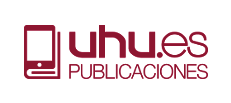Literary topoi in today’s music as a bridge to the classics Spanish authors
Keywords:
Abstract
This article presents a review of literary topoi in current music that come from classical Spanish authors and that, therefore, can be exploited didactically with the aim of bringing students closer to literature. The songs that young people listen to are a "powerful hook" with the literary tradition since they allow them to identify these topics and connect them with classic literary works. From a theoretical point of view, we begin by delving into the links between literature and music, we by addressing the concept of literary topic, and we conclude by connecting some current songs with classic literary works through some literary topics or catchwords. These approaches were subjected to classroom action research that was initiated in the framework of a doctoral dissertation and implemented in a Warsaw secondary school mainly during the 2013/2014 academic year. It was subsequently adapted for interactive use within an innovation project of the University of Zaragoza in the 2017/18 academic year and finally applied in an innovation project of the Government of Aragon with 3rd ESO students of the IES Ramón Pignatelli during the 2018/19 academic year. Finally, we analyzed the results of the practical applications, which showed an increase in both student motivation and understanding of literary content.
Downloads
Altmetrics
References
Ausubel, D. P. (2002). Adquisición y retención del conocimiento: Una perspectiva cognitiva, traducción de Ausubel (2000). Ediciones Paidós.
Calvino, I. (1993). Por qué leer a los clásicos. Tusquets. Barcelona.
Creswell, J. W. (2009). Research Design: Qualitative, Quantitative, and Mixed Methods Approaches, Sage Publications.
Cristóbal, R. (2017). Impacto de la educación literaria basada en canciones, (Doctoral dissertation), Universidad de Granada.
Cristóbal, R., Sanjuán, M. & Villanueva, J. D. (2019). Materiales e Innovación Educativa en la Sociedad del Conocimiento, 214-220, Universidad de Zaragoza, https://zaguan.unizar.es/record/79018
Chambers, A. (2007). Dime: Los niños, la lectura y la conversación, Fondo de Cultural Económica.
Escobar Martínez, M. D. (2010). Literatura y música. Un modelo didáctico de interpretación intertextual en Educación Secundaria, (Doctoral dissertation), Universidad de Murcia.
Gómez Capuz, J. (2004). La poética del pop: los recursos retóricos en las letras del pop español. Anales de Literatura Española, 17, 49-72. Universidad de Alicante.
Gómez Capuz, J. (2009). Las letras de canciones de pop-rock español como textos poéticos un modelo alternativo de educación literaria para E.S.O. y Bachillerato. Electronic journal of philological studies, Tonos digital, 17.
González García, M. and Caro Valverde, M. T. (2009). Didáctica de la literatura. La educación literaria. Revista Digitum, https://digitum.um.es/digitum/handle/10201/7791
Guerrero Ruiz, P. (2008). Metodología de Investigación en Educación Literaria (El Modelo Ekfrástico), Diego Marín.
Hernández, R., Fernández, C. & Baptista, P. (2010). Metodología de la investigación, Mc Graw-Hill.
Latorre, A. (2007). La investigación-acción. Conocer y cambiar la práctica educativa, [versión electrónica] Barcelona: Graó.
López Valero, A. and Encabo Fernández, E. (2013). Fundamentos didácticos de la lengua y la literatura. [Kindle version] Editorial Síntesis.
Lleida Lanau, E. (2019). Itinerarios lectores para la educación poética en la ESO: Del rap a la poesía canónica. Bellaterra Journal of Teaching & Learning Language & Literature, 12(4), 44-60 DOI: https://doi.org/10.5565/rev/jtl3.836
Lleida Lanau, E. (2021). La construcción de la identidad juvenil a través del RAP y la cultura HIP HOP. Análisis cualitativo de su potencialidad para la educación poética en la educación secundaria en Aragón, (Doctoral dissertation) Universidad de Zaragoza, https://zaguan.unizar.es/record/109432?ln=es
Martínez González, R. A. (2007). La investigación en la práctica educativa: Guía metodológica de investigación para el diagnóstico y evaluación en los centros docentes. Centro de Investigación y Documentación Educativa (CIDE).
Mendoza Fillola, A. (1993). El concepto de intertextualidad en los textos literarios y en las artes visuales: una reflexión didáctica sobre la contigüidad cultural. III Simposio Internacional de la Sociedad Española de Didáctica de la Lengua y la Literatura, 333-342. Universidad de La Coruña.
Mendoza, A. (2008). Leer y comparar (notas sobre las posibilidades del comparativismo en el aula de Educación Secundaria), Lenguaje y Textos, 28, 19-41.
Millares, S. (2010). Al son de los poetas. Lengua y literatura a través de la música, Edinumen.
Moreira, M. A. (2005). Aprendizaje significativo crítico (Critical meaningful learning), Indivisa. Boletín de Estudios e Investigación, 6, 83-102, La Salle Centro Universitario.
Ocw.unizar.es (2018). https://ocw.unizar.es/ocw/course/view.php?id=50
Perdomo López, C. A. (2005). Nuevos planteamientos para la formación de la competencia literaria, Lenguaje y textos, 23, 149-159, https://dialnet.unirioja.es/servlet/articulo?codigo=1369974
Prado Aragonés, J, (2004). Didáctica de la lengua y la literatura para educar en el siglo XXI, La Muralla.
Sanjuán Álvarez, M. (2011). De la experiencia de la lectura a la educación literaria. Análisis de los componentes emocionales de la lectura literaria en la infancia y la adolescencia, Ocnos, 7, 85-100.
Sanjuán Álvarez, M. (2014). Leer para sentir. La dimensión emocional de la educación literaria, Impossibilia, 8, 155-178.
Verdión Castro, J. (2010). La canción popular moderna en español: rasgos de literariedad, Espéculo. Revista de estudios literarios, 46, http://www.ucm.es/info/especulo/numero46/canpopul.html
Vicente-Yagüe, M. I. (2012): Educación literaria y musical. Un modelo interdisciplinar de innovación didáctica en Educación Secundaria Obligatoria, Bachillerato y Enseñanzas Artísticas de Música (Doctoral dissertation). Universidad de Murcia.
Vicente-Yagüe, M. I. (2013): Fundamentación teórica de la intertextualidad literario-musical como línea de investigación e innovación en Didáctica de la Lengua y la Literatura, Dialogía, 7, 245-267.
Vicente Ruiz, P. A. (2003) Buenos tiempos para la lírica, Literatura y jóvenes: amores y odios, pp. 83-94. Centro de Profesorado CPR Murcia II.
Zamora Pérez, E. C. (2000). Juglares del siglo XX: la canción amorosa, Pop, Rock y de cantautor (Temas y tópicos literarios desde la década 1980-1990), Universidad de Sevilla.

By submitting a proposal, the author agrees to the following terms:
- a) The author retains the authorship rights, granting the journal the right of first publication of the work.
- b) The texts will be disseminated with the Creative attribution license Commons 4.0. BY that allows you to share, copy and redistribute the material in any medium or format, as well as adapt, remix, transform and build on the material for any purpose, including commercially.







